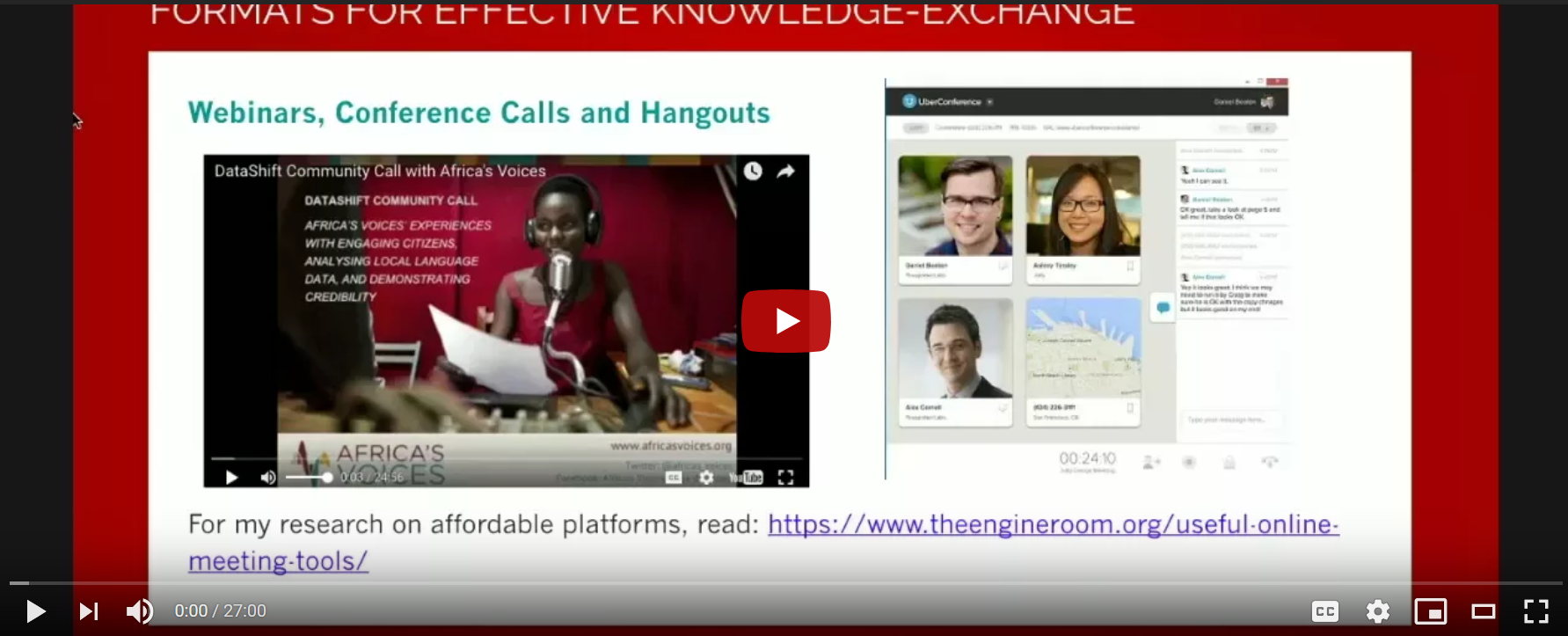In the human rights field, communities of practice and knowledge management provide important benefits to our work:
- The ongoing collection of new knowledge and lessons-learned. The human rights field and technology is changing so fast – new tools are being built and existing tools are being improved or retired – we need an adaptive and collective space to share this information in real-time.
- Contributes to a stronger knowledge base. The more people we’re able to engage, the stronger our collection of resources and knowledge will be.
- Provides a community of support. This work is difficult and risky. In addition to the technical and practical advice, a community of peers can provide much-needed support for a practitioner’s well-being and sense of solidarity.
- It’s affordable. Reflecting on our work and sharing our experiences is only as expensive as the time we spend doing it. There’s no need to build a new software – use the tools that are available to you.
If we can find effective ways to capture, manage, and share this knowledge with each other, we can all strengthen and improve our work. But this is no short order. Human rights defenders rarely have time for reflection, nor do they time to document it! So how can we make this as easy and efficient as possible for practitioners? Answer: good facilitation.
Facilitating knowledge exchange is an important and sometimes difficult step in knowledge management. Setting up your knowledge database, your search filters, and categories is one thing. But getting people to share those nuggets of knowledge that can transfer from one practitioner to another is quite a different story. Whether you are working with a small project team, a mid-size organization, or a broader, cross-organizational community of practice, you need to find incentives and formats for members to share their knowledge.
Reflecting on my own experience working with communities of practice in the human rights field, I put together a presentation for a recent TechChange course on Knowledge Management. This presentation highlights: what I have learned about facilitating knowledge exchange by providing the right incentives, format and support. Below you can watch a video of the presentation and you’ll also find the slides. I hope you find this information helpful!
Video of presentation (about 30 minutes):
Slides from presentation:
